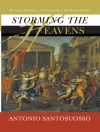Human capital and empire compares the role of Scots, Irish and Welsh within the English East India Company between c. 1690 and c. 1820. It focuses on why the three groups developed such distinctive and different profiles within the corporation and its wider colonial activities in Asia. Besides contributing to the national histories of Scotland, Ireland and Wales, it uses these societies to ask how ‘poorer’ regions of Europe participated in global empire. The chapters cover involvement in the Company’s administrative, military, medical, maritime and private trade activities. The analysis conceives of sojourning to Asia as a cycle of human capital, with human mobility used to access a key sector of world trade. As well as providing essential new statistical information on Irish, Scottish and Welsh participation, it makes a significant contribution to ongoing debates on the legacies of empire.
Tabla de materias
Founding editor’s introduction
Introduction: Complicating the Coloniser: Scottish, Irish and Welsh perspectives on British imperialism in Asia
1 London and early links with the English East India companies
2 The brokers of human capital: shareholders and directors
3 Civil servants and mariners
4 The military: economies of high- and low-value human capital
5 Circuits of human and cultural capital: medicine and the knowledge economy in Asia
6 The free traders: connecting economies of human and monetary capital
7 Returns: realising the human capital economy
Conclusions: ‘Poor’ Europe’s pathways to empire and globalisation
Appendices
Index
Sobre el autor
Andrew Mackillop is a Senior Lecturer in Scottish History at the University of Glasgow












